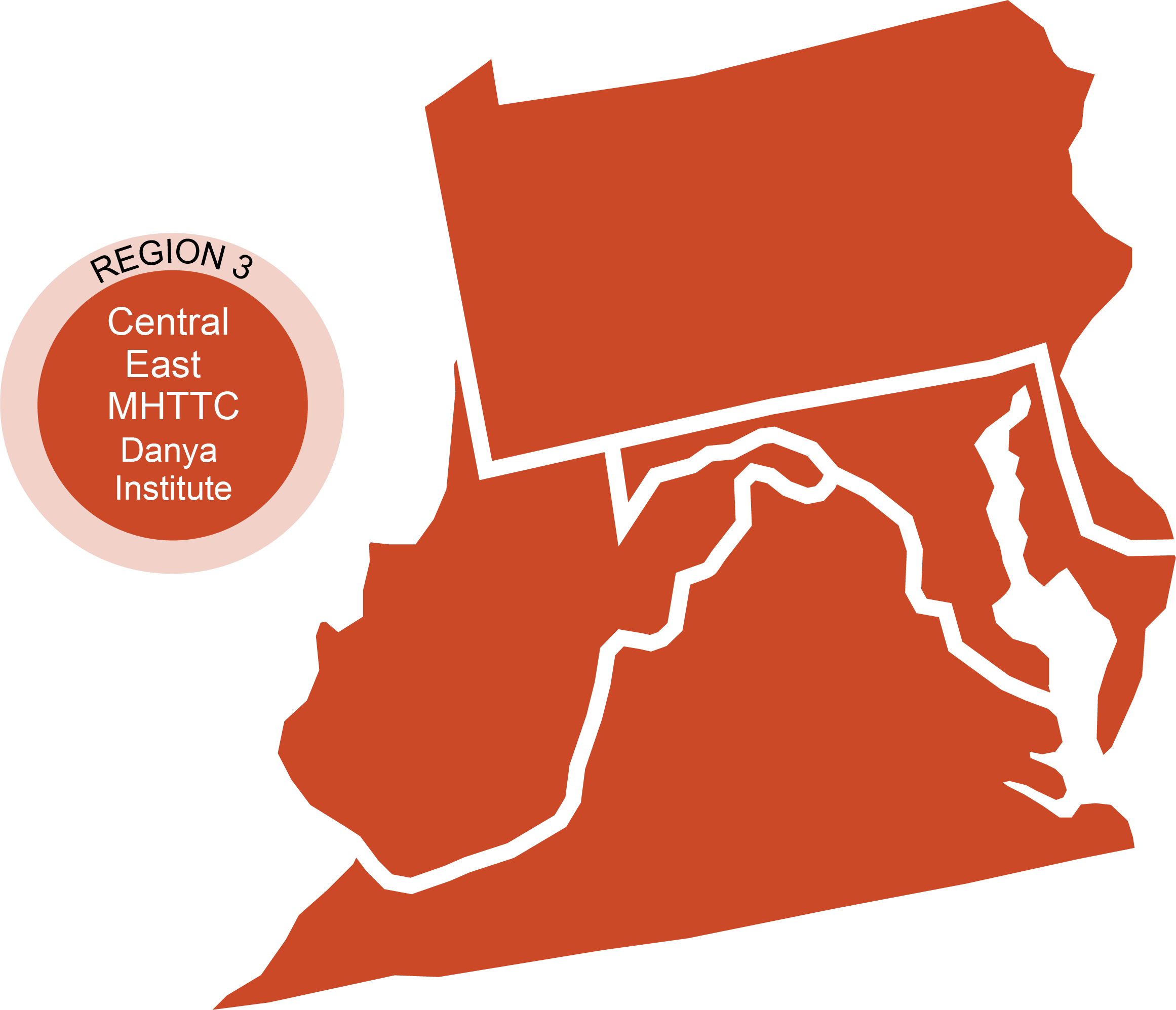Home > MIC Stories: Promoting Educator Well-Being

MIC Stories (MHTTCs Implementing Change) feature technical assistance projects that had a significant impact on practice.
Educators and school-based staff play important roles in supporting student mental health, often listening to students’ fears and concerns, and helping them cope with stressful events. In addition, educators and staff are working long days and often report feeling overwhelmed by juggling many job responsibilities. The effect of this stress can take the form of compassion fatigue, burnout, or secondary traumatic stress that contribute to lower job satisfaction and educator turnover. With the start of COVID in 2019, its continued dominance in 2020, and its lingering effects, many public school teachers and staff in the Central East region contemplated leaving the profession due to burnout and compassion fatigue. The Central East MHTTC, in its assessment of the State Departments of Education and local school districts in the region, found that the school mental health workforce wanted more training and technical assistance in compassion fatigue.
The Central East MHTTC aimed to provide training and technical assistance to support educators in identifying and understanding contributors and symptoms of compassion fatigue, burnout, and secondary traumatic stress; gaining an understanding of their own experiences with compassion fatigue, burnout, and secondary traumatic stress; and learning strategies to improve their well-being.
The Central East MHTTC collaborated with the National Center for School Mental Health and the West Virginia Department of Education to invite all local school districts to participate in Central East MHTTC's well-being training. 852 individuals participated from 52 out of 55 local school districts. Participants included:

The Central East MHTTC and the National Center School Mental Health developed an evidence-based, 6-hour, face-to-face training comprised of 10 lessons about the state of change, the impact of stress on the mind and body, and processes to develop a self-care plan in the following five areas:
Assessments throughout the lessons guided participants in selecting areas of focus and strategies that are most likely to be helpful. Indefinite coaching, peer support, follow along, and follow-up consultation was provided following the initial training.
There was a very high demand for this well-being training, which exceeded the capacity of the Central East MHTTC and led to multiple trainings in various local school districts throughout the state. In addition, educators and school personnel who participated in the training expressed concerns about being out of the classroom for an extended period. Participants also had limited staff development time provided by their schools, causing the number of individuals in each cohort to exceed Central East’s ideal number of individuals for each training session. To address the capacity concerns, a dedicated email address was established to provide indefinite individualized support, coaching, follow along, and follow-up consultation.
This training was evaluated using a survey to measure participant satisfaction with the overall quality of training, whether participants thought the training would benefit their professional development, and whether participants will use the information from training to change their current practices.
Of participants who completed the post-event survey:
In addition, participants reported developing and implementing self-care plans and obtaining coaching and follow-up as needed from the Central East MHTTC, as well as peer support. Participants also reported improvement in their ability to cope with day-to-day stress and improved outlook for continuing to work in the field, with one teacher saying "there has been an overall improvement in communication and work-life balance at my office. My colleagues seem to be more conscious of their experience of stress and how to combat it to avoid burnout and compassion fatigue."
Some changes participants mentioned they'd be making to their practice include:
This well-being training is an essential brand element of our work in Region 3. The training advanced the skills, knowledge, and capacity of school personnel to understand differences between and strategies to counter fatigue, burnout, and secondary traumatic stress. The training also helped participants to learn strategies to enhance well-being and promote job satisfaction.
The 6-hour training, coupled with the follow-up individualized and peer-to-peer support groups, proved to be time-consuming for teachers and school personnel. In response to feedback, the Central East MHTTC, in conjunction with the University of Maryland School of Medicine, MedStar Health, Georgetown University Hospital, and 3C Institute, recently developed a self-paced and interactive self-care assessment tool and a compilation of measures and resources that have proven effective in assessing and improving personal and professional well-being for behavioral healthcare providers in various settings.
The Central East MHTTC and its partners have provided an introductory webinar to the self-paced tool and also developed a dedicated contact portal for the participants of the well-being training, as a streamlined method for responding to follow up questions and coaching requests and identifying additional supports needed.
More information on the self-care assessment tool and resource compilation is available here.
Burnout and compassion fatigue are major issues affecting educators and school personnel. As a result, many are contemplating leaving the field. The well-being training developed by the Central East MHTTC and the National Center for School Mental Health is one example of the type of support that can be provided to educators and school personnel to help them cope during difficult and overwhelming times. The Central East MHTTC plans to continue to identify opportunities to support the mental health and well-being of educators and school personnel in the Central East region.

The Central East MHTTC, funded by the Substance Abuse and Mental Health Services Administration and managed by the Danya Institute, Inc., provides training, technical assistance, and resources to the behavioral health and primary care workforce in the U.S. Department of Health and Human Services Region 3. Central East strives to improve the knowledge, skills and capacity of the workforce in Delaware, Maryland, Pennsylvania, Virginia, West Virginia and the District of Columbia that provides prevention, treatment and recovery support services to individuals who have and/or are at risk of developing serious mental illness and/or co-occurring substance use disorders.